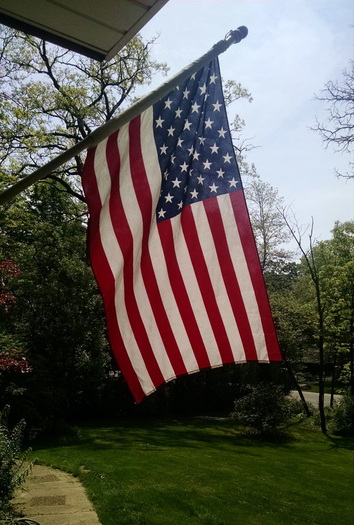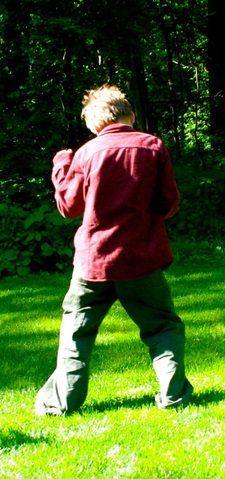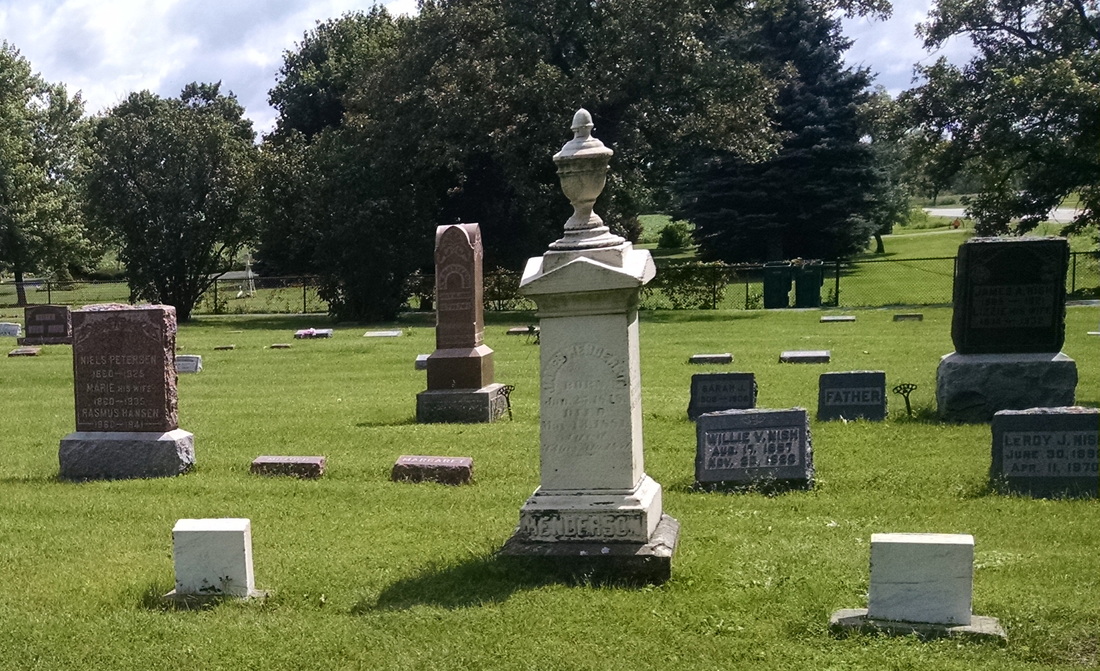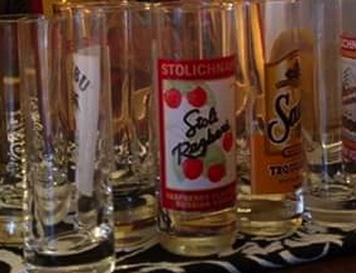|
Memorial Day is next week Monday. Many of us think of it as the gateway of summer in the US. We cook out, relax and think of the warm days to come and what our summer might look like this year. For those of us living in the North, the warm sunny days come as a reward for our long, dark and often rough winters. In truth, Memorial Day grew out of the Civil War. We could discuss the development of the day or where and how it began, but suffice it to say, Memorial Day is the day we as US citizens remember those who gave their lives for our country. It should be a solemn day. It should be a day we think about what it means to have our fellow citizens to give their lives so that we can live in freedom. Even if you are a pacifist and do not believe in war, we cannot get around the fact that people have given their lives for us. People who do not know us have died so that we might enjoy our freedoms. We might not agree with every conflict we have sent our children to fight and die in, but the fact remains that people have died and we should take notice of that fact. This Memorial Day let us note that so many have died for our freedoms. Let us not take our freedoms lightly. Let us remember all those who have given their lives for us in hopes that we might live a better life.
0 Comments
I recently read a very powerful article, Unearthing the Secrets of New York’s Mass Graves. Citizens of that great city have only 24 hours to claim the bodies of their loved ones before they become the property of the city. Once the property of the city their bodies can be given to medical schools for dissection or given to mortuary schools for students to learn how to embalm. In modern times, people are more likely to donate their bodies to science, but with laws like New York City’s, the medical world surely will not have to worry about supply. The practice of using unclaimed bodies for use of embalmers to improve their art or use as a method of increasing sales dates back to the infancy of embalming in the US. To be sure, not every embalmer was so unscrupulous as this, but it did happen.
Whether or not these practices are for the greater good of society could probably be debated. What is so disturbing is that New York is one of the states that by law allows the death care industry to hold our bodies hostage for services we might not want or need. If in New York an alternative death care industry was allowed to grow, perhaps fewer people without the means could in fact care for their dead. Who is to say that every person should be embalmed or cremated? Who is to say how much this should cost? Why can’t a nonprofit exist to care for the dead outside the egis of the death care industry? The death care industry and its strong lobby at the state and federal levels do. Surely we must have laws care for the dead for those who are not able to do so, but to make it so difficult for people with modest means is not right and not just. We should not have to crowdfund a funeral. We should not have to feel that if we don’t come up with the thousands of dollars to have a “proper” funeral for our loved ones that they will end up in a mass grave. We need so much more education on the care of the dead in this country. We need more people who are willing to stand up and make a change. With the shrinking middle class, the death care industry must change to include more modest and dignified means of caring for the dead. If this does not happen, then they should move over and allow those who want to care for the dead. Who of us is free when we allow this to continue? I do not pretend to be an expert on handling children on the topic of death. What I do know is my own experience. I have very fond memories of playing in cemeteries as a child. My dad was very interested in family history so when we would go down to Southern Indiana to visit family, he would take us kids out with him. While he researched our relatives’ graves, my sister and I would play in the cemeteries. I have always loved cemeteries. I love the stone monuments and the stories they tell. When I was in college, my friends and I would walk in the cemetery near by. It always afforded such peaceful walks and stimulated some wonderful conversations. Of course, sometimes we would run into an interesting character who would approach us for conversation. Sometimes you meet interesting characters in the cemetery.
I remember as a child, my parents’ long time friend was dying in a town about an hour and a half away. We would leave on Friday after school and go visit. My parents would leave us mostly in the waiting room of the hospital. It was the 1970s. My parents would come out to see if we were OK through out the visit and then we would go out for dinner. What I remember from this besides the gummy bears that I had for the first time at the restaurant, was witnessing my parents’ dedication to a friend they loved while she was dying. What a heritage they gave both my sister and I! We saw and experienced what it meant to be a friend, and what it meant to love someone when they were facing death. About this time my mother’s mother was diagnosed with cancer. My mother would go to be with her on the weekends. Dad took care of us at home. He was a good cook and a fabulous dad. I remember one Saturday talking about my grandma’s imminent death with my cousins in her kitchen. We were all very solemn and sad. I think this was the first time someone so close to us was going to die and we knew we could not change that. My grandma did die when I was seven. I did not cry. I felt bad for a long time that I did not cry. I have cried since. Grandma’s funeral was a beautiful event. Her favourite poems were read and many people came to share memories. What I remember so clearly from that day was that we cousins held up in the backroom throughout the whole gathering that followed her funeral back at the house. Every single cousin was there. The next time all the cousins gathered again was at Grandpa’s funeral when we were all in our thirties. We gathered then as adults with our spouses and children if we had them. It was quite the event. We danced in the living room to his music and told stories. That was the last time we have gathered as a family. I hold both these funerals dear in my heart. The point of these stories is that my introduction into death and dying took place in the context of everyday life. Dad had work to do in the cemetery and we would tag along. Mom and Dad had a dear friend who was dying, and they took us with them. My grandmother was also dying and we kids shared what we thought about it with each other and then when she died, we comforted each other and became even closer. I cannot and will not tell any parent how or when to introduce a child to the concept of death, but I offer my experiences. My parents took everyday events to teach us about death and dying. We learned that our ancestors have stories to tell. We learned that when a friend is dying, we make an effort to visit them because we love them and that is what love looks like. We learned that kids our own age understand what it means to loose someone we love and that in grief and loss, we can love each other through it. Death and dying were not traumatic events in my life. Death is sad, but not traumatic. From a young age I learned to be there for people we love when they are dying and when in grief. I learned not to fear death, but that it is part of the fabric of life and we need to show up and love people especially in the difficult times. Death is one of those difficult times. You might wish upon your death that your loved ones would gather and love each other through the grief of your passing, or so you hope. Perhaps you want a simple event. Maybe you do not want too much fuss and think it would be good for your body to return to the earth without having to go through embalming or cremation. You just do not want fuss. You know that law allows having a natural body for a funeral and burial. You know that science tell us that our bodies, in general are not toxic to the earth upon death. You know all these things, so why is it so hard to obtain? Having a simple funeral and burial is hard because the death care industry has a gentlemen’s agreement to not allow us to have a visitation with a natural body when we hire them. For many of the States, this is fine. If you live a state does not allow you the right to choose whom you want to care for your body at death, this becomes more complicated.
We have had gentlemen’s agreements before in the US. Baseball is well known for its gentlemen’s agreement keeping African American players out of the major league until 1947 when Jackie Robinson became the first African American in the major league. Before this, the African American community formed a separate league where great ball players played ball, but were hindered from playing in the major league. This is not a treatise on baseball, but an example of how we have seen a group of people in the US take power, and use it against other people for whatever reasons they might have at the moment. In baseball, there was not a written rule against black ball players playing in the major league. The US had no law that hindered a variety of races playing ball together. The team owners did not want it to happen and so it did not happen. With the death care industry, funeral directors have formed such a strong lobby on the state and federal levels that they can protect their industry in ways they see fit. In ten states, citizens are required to hire a funeral director at death. These laws enslave the citizenry into purchasing a service from a moneymaking industry and not for the citizens, but for the protection the industry itself. If you walk into a funeral home and ask not to be embalmed, and you want a visitation, you will most likely run into problems. They might suggest you have a direct burial, but that is not what you want at all. I have been told that having a natural body for a visitation is illegal. It is not! I have been told that embalming sanitizes the body. It does not!! I have been told that a natural body transmits disease. In most cases it does not and we have laws that prohibits natural bodies at funerals for these very rare cases. Transmission of disease from a body comes when you open the body and come in contact with bodily fluids, which happens in the embalming process. I have been told that there is a funeral home director association that issues fines to funeral homes that allow natural bodies at visitations. No one is issuing fines for this! There is hope for us in the states that are no longer free. There is a loose network of individuals who will help families that want a simple funeral in non-free states. We work like the resistance. We want people to be free to choose who and how their bodies are cared for after death. When starting to find service providers in your state, first contact a home funeral guide in your area. He or she will know how to work within the law to get you the funeral you want. Check out the green funeral directors on the Green Burial Council’s site. Always ask your questions. See if their answers ring true to you. Remember that these funeral directors are from the industry, and might still have some of the death care industry outlook. Ask questions and listen to everyone. Only you know whom you wish to work with in your own plan. Make your plans and talk with your family and loved ones. These are the people who will have to do the final work, and they should feel comfortable with your ideas and wishes. You can have a simple event upon your death, even in states that require us to work with a funeral director. We have to do more work and ask more questions, but it can be done. |
Caroline Vuyadinov
Archives
December 2018
Categories
All
|





 RSS Feed
RSS Feed